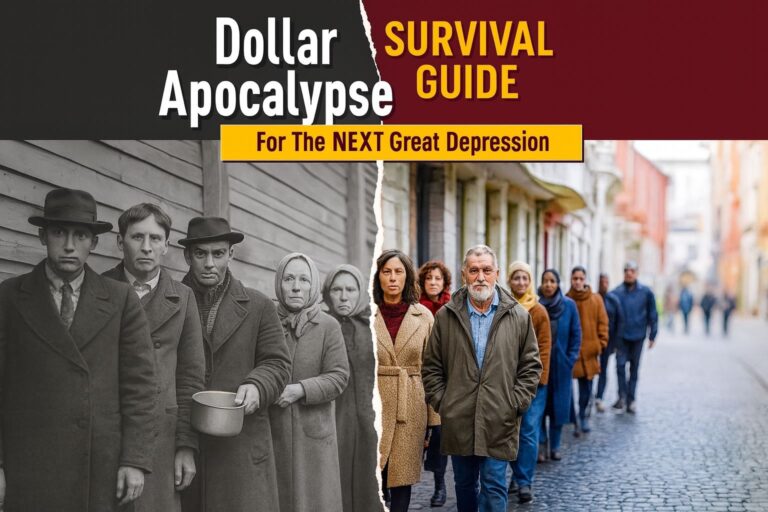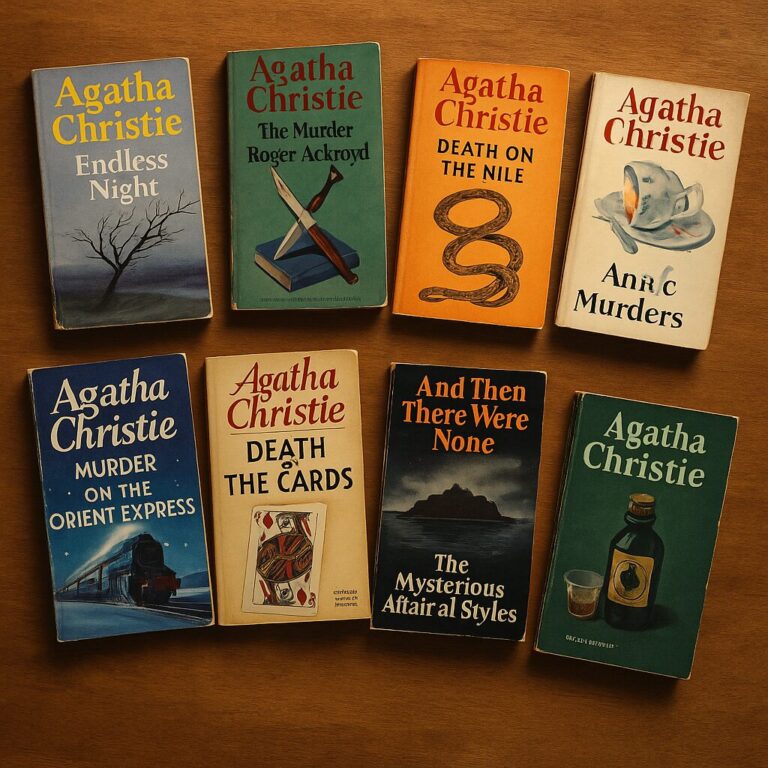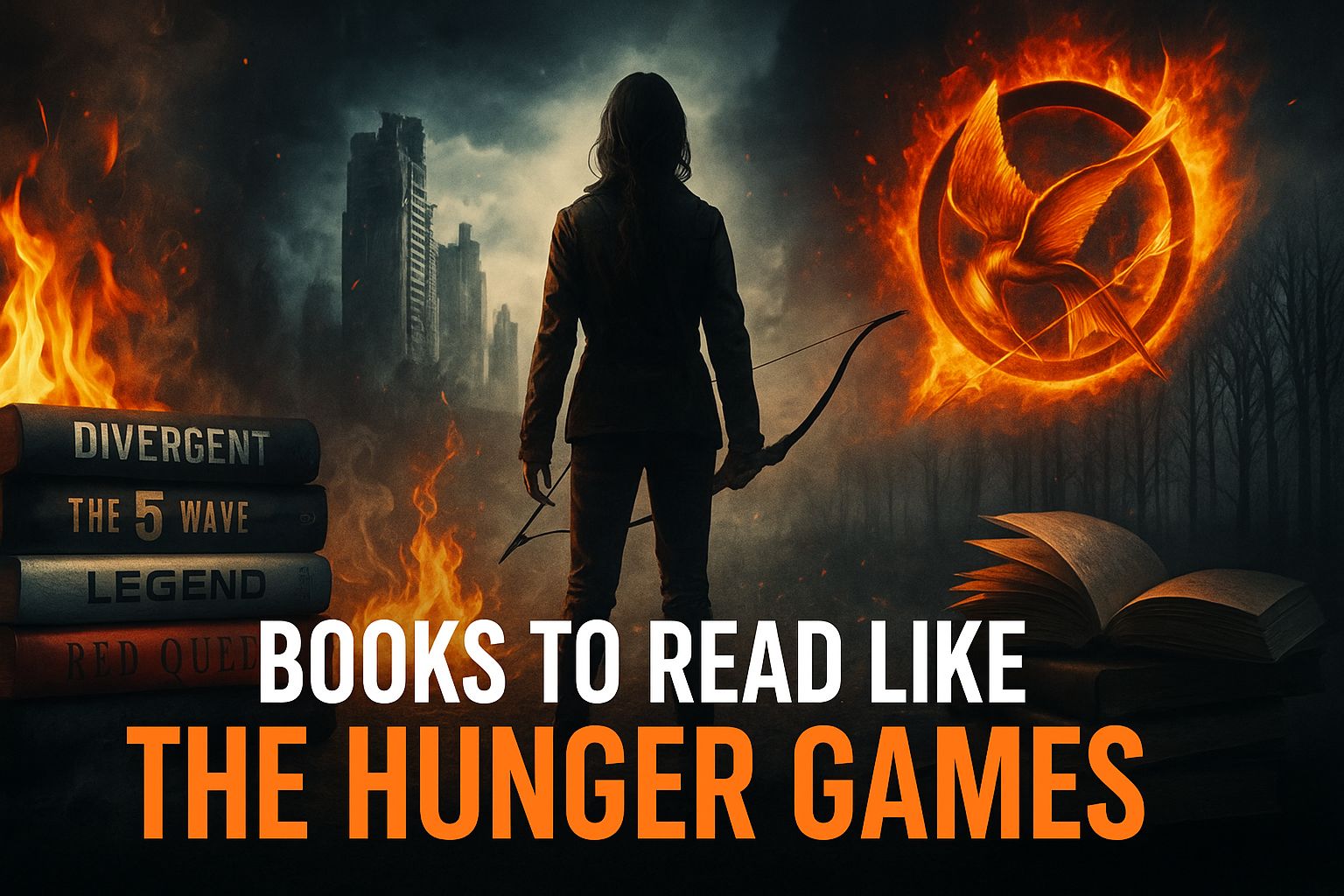
When The Hunger Games ended, a lot of us closed that last page and just… sat there. Empty.
Katniss was gone, the Capitol had fallen, and suddenly our world felt too normal again. But if you’re still craving that rush of rebellion, survival, and impossible love — don’t worry. The arena might be closed, but there are plenty of other worlds waiting to break your heart and rebuild it again.
Here are the best books to read if you loved The Hunger Games — stories filled with danger, defiance, and the kind of flawed, fire-hearted heroes that keep you up way past midnight.
1. Divergent by Veronica Roth

If The Hunger Games made you love dystopian societies with strict control, Divergent is your next obsession.
In a future Chicago divided into factions based on virtues, Tris Prior discovers she doesn’t fit anywhere — which makes her dangerous.
You get all the ingredients: a divided world, a fearless girl with something to prove, and a rebellion rising from the cracks of the system. The action is sharp, the romance tight, and the tension constant.
What makes Divergent shine is its question of identity — who are you when society decides what you’re worth? Tris’s journey feels like Katniss’s mirror — not a copy, but a reflection from a slightly darker angle.
It also digs deeper into the psychology of belonging. Every choice Tris makes tests loyalty, family, and freedom — and by the end, you realize that courage isn’t loud or glamorous. It’s standing up when you’re scared and no one’s watching.
And if you’re into emotional arcs that hit hard, this trilogy takes you there. It’s less about winning and more about what you lose when you try to change the world.
2. Legend by Marie Lu
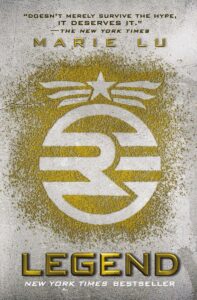
Legend swaps the arena for the streets — where two teens from opposite sides of a militarized nation collide. Day is a wanted criminal; June is a prodigy trained to hunt him down.
When their paths cross, everything they believe starts to unravel.
It’s fast, cinematic, and emotionally charged — a perfect match for readers who loved the strategy and tension of The Hunger Games.
Marie Lu builds a world that feels eerily possible — all surveillance, control, and propaganda — but what hooks you is the humanity. Beneath the uniforms and chaos, Legend is about loyalty, grief, and how love can bloom even when everything else burns.
It’s not just another rebellion story. Legend shows how systems twist people on both sides — heroes and villains molded by lies. Watching June and Day try to navigate truth in a world built on deceit is heartbreak in motion.
And if you think the first book is good, the sequels raise the stakes beautifully. Each one expands the world, deepens the politics, and makes you question what “freedom” really costs.
3. The Maze Runner by James Dashner
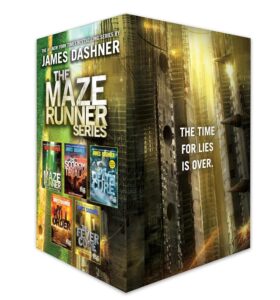
Imagine waking up in a giant labyrinth with no memory of who you are — and the walls move every night. That’s the starting point for The Maze Runner, a brutal survival puzzle where teamwork and betrayal constantly collide.
If you loved the fight-to-survive intensity of The Hunger Games, this is your next caffeine hit. Thomas, the main character, is stubborn, brave, and desperate to make sense of the impossible.
The first book grips you with claustrophobic dread, and the sequels explode into a much bigger conspiracy. It’s less about rebellion and more about endurance — what happens when you stop being afraid and start adapting to madness.
What makes The Maze Runner stand out is its mystery. You’re learning about the world alongside the characters, and every answer brings two new questions. It’s that perfect balance of suspense and chaos that keeps you hooked.
And when the truth finally unravels, it hits like a brick. The moral tension — survival versus humanity — makes this series not just thrilling, but deeply haunting.
4. Red Queen by Victoria Aveyard
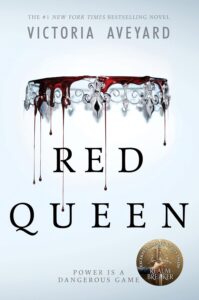
Power, blood, and politics — Red Queen delivers the royal-level drama that The Hunger Games hinted at but never lingered on.
In a kingdom where silver-blooded elites rule over red-blooded commoners, Mare Barrow discovers she has powers no one should have.
Suddenly she’s trapped between the palace and the rebellion, pretending to belong in a world that wants her dead.
The tone is darker, more romantic, and full of the kind of twists that make you whisper “no way” at 3 a.m. If Katniss was the reluctant symbol, Mare is the spark that burns the system down from within.
Aveyard’s writing drips with tension — every room, every royal smile, every betrayal feels like it could end in blood. It’s not just a story about rebellion; it’s about survival inside luxury’s cage.
And as the series unfolds, Mare’s evolution mirrors the cost of resistance. Power changes people — sometimes for the better, sometimes for the worse — and Red Queen doesn’t flinch from showing either.
5. The 5th Wave by Rick Yancey
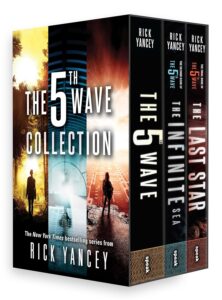
It’s easy to think alien invasion stories are all laser beams and flying saucers — until you read The 5th Wave.
This one feels different. It’s cold, emotional, and terrifying because it’s so human.
Cassie Sullivan is just trying to survive after an alien attack that wiped out most of Earth. The story blends the survival realism of The Hunger Games with the paranoia of not knowing who to trust.
It’s not just about survival — it’s about isolation, resilience, and the stubborn spark of hope that refuses to die even when the world already has.
What makes this story special is how intimate it feels. The invasion isn’t a spectacle — it’s personal, quiet, and brutal. You feel Cassie’s loneliness, her fear, and her courage in every page.
It’s one of those books that reminds you: the end of the world doesn’t always come with fire. Sometimes it comes with silence, and the sound of someone still fighting anyway.
6. Matched by Ally Condie

If you liked the quieter, emotional side of The Hunger Games — the slow rebellion, the small acts of defiance — Matched will speak to you.
In a society where the government decides everything, even who you love, Cassia’s life unravels when her assigned match glitches — showing two faces instead of one.
It’s less about explosions and more about awakening. How rebellion starts not with war, but with a single thought: What if they’re wrong?
Matched is the kind of dystopia that whispers instead of shouts, but the echo lasts just as long.
The writing is poetic, soft, and haunting — every page feels like it’s unfolding in slow motion. You watch Cassia learn to think for herself, and that’s the real revolution.
It’s perfect for readers who want to see how love and freedom grow quietly under the weight of control. Sometimes the loudest rebellions start as whispers.
7. The Grace Year by Kim Liggett
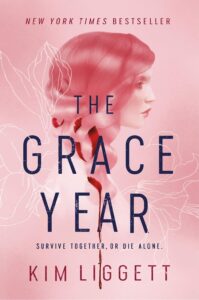
This one feels like a fever dream — part horror, part coming-of-age, all rebellion.
In a society that exiles girls for a year when they turn sixteen, claiming their “magic” is too dangerous, The Grace Year follows Tierney as she learns what really happens beyond the fences.
Think The Hunger Games meets The Handmaid’s Tale, but rawer.
It’s a brutal look at how societies weaponize fear — and how women find ways to survive even when the system demands they destroy each other.
What makes The Grace Year unforgettable is its atmosphere. The isolation, the hysteria, the whisper of something supernatural — it all blends into a haunting metaphor for control and awakening.
And the ending… it lingers. It’s not just rebellion; it’s reclamation — a promise that survival can be more powerful than revenge.
8. Scythe by Neal Shusterman
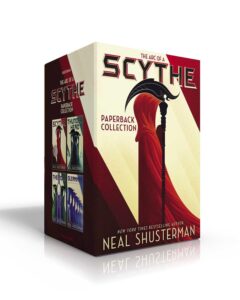
The future here is perfect — no hunger, no war, no death… unless it’s delivered by a Scythe. These elite reapers keep the population under control in a world where humanity has conquered mortality.
Two teens are chosen to train as Scythes, and their morality is pushed to the breaking point.
It’s sleek, philosophical, and haunting — exploring what happens when the power of life and death becomes just another job.
If you loved The Hunger Games for its moral tension — the question of what killing does to the soul — Scythe will cut deep.
It also dares to ask: What does justice look like when suffering is gone? The result is a story that’s as thoughtful as it is thrilling.
The writing is sharp, the ideas bold, and every page hums with quiet dread. Scythe doesn’t just entertain — it unsettles you in the best possible way.
9. The Knife of Never Letting Go by Patrick Ness
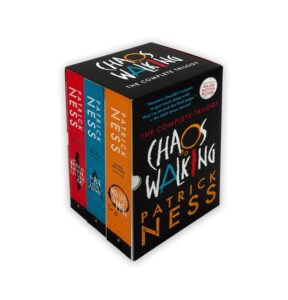
This one hits differently. In a world where everyone can hear each other’s thoughts, silence becomes the rarest thing of all. Todd Hewitt is the only boy left in a town of men — until he learns a secret that forces him to run for his life.
It’s strange, powerful, and painfully emotional.
The writing style mirrors Todd’s chaos — raw, jagged, and impossible to forget. And just like Katniss, he’s thrust into a war he didn’t ask for but can’t escape.
What sets it apart is its emotional honesty. Todd isn’t a warrior; he’s a kid trying to understand a world that’s lost its mind. That vulnerability makes the stakes even higher.
And the deeper you go, the more you realize that this isn’t just a dystopia — it’s a story about growing up, grief, and the cost of becoming human in a world that’s forgotten how.
10. The Power by Naomi Alderman
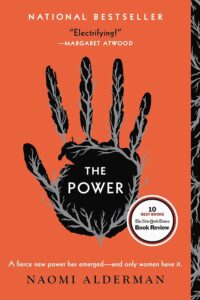
What if girls suddenly developed the ability to produce deadly electric shocks? How would the world change?
The Power flips the gender dynamic on its head — and the result is dark, addictive, and thought-provoking.
This isn’t a traditional YA dystopia; it’s sharper, older, and more politically charged. But it asks the same question that The Hunger Games does:
What happens when the oppressed finally get power — and start using it?
Alderman’s writing is electric — both in subject and in tone. It’s uncomfortable, thrilling, and impossible to look away from.
And by the end, you’re left wondering if power itself is the problem — not who holds it. It’s a masterpiece of tension and moral ambiguity, the kind of story that stays under your skin long after the last page.
Final Thoughts
If The Hunger Games woke you up to how fragile freedom can be, these books will keep that fire alive. Each one digs into survival, rebellion, and what it means to stay human when the world demands you stop being one.Some will break your heart. Some will rebuild it. All of them will make you ask the question Katniss never stopped asking: What’s the price of freedom — and who pays it?

